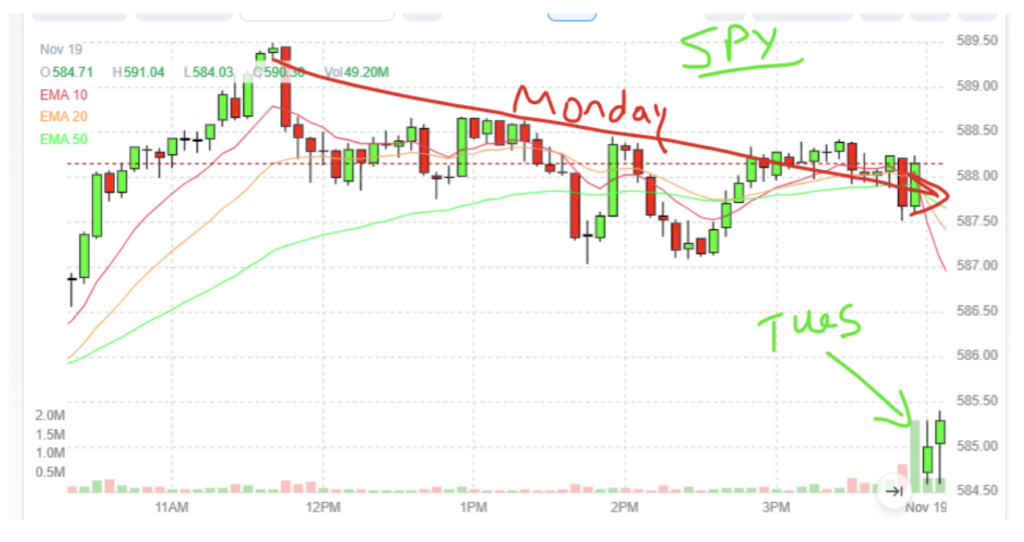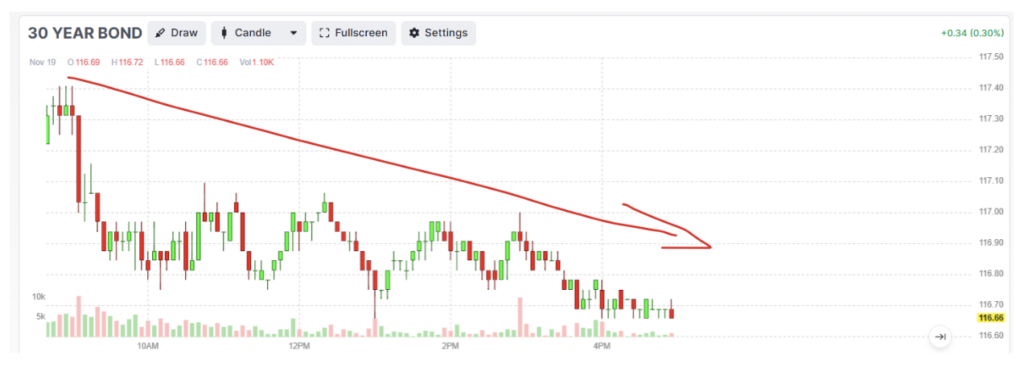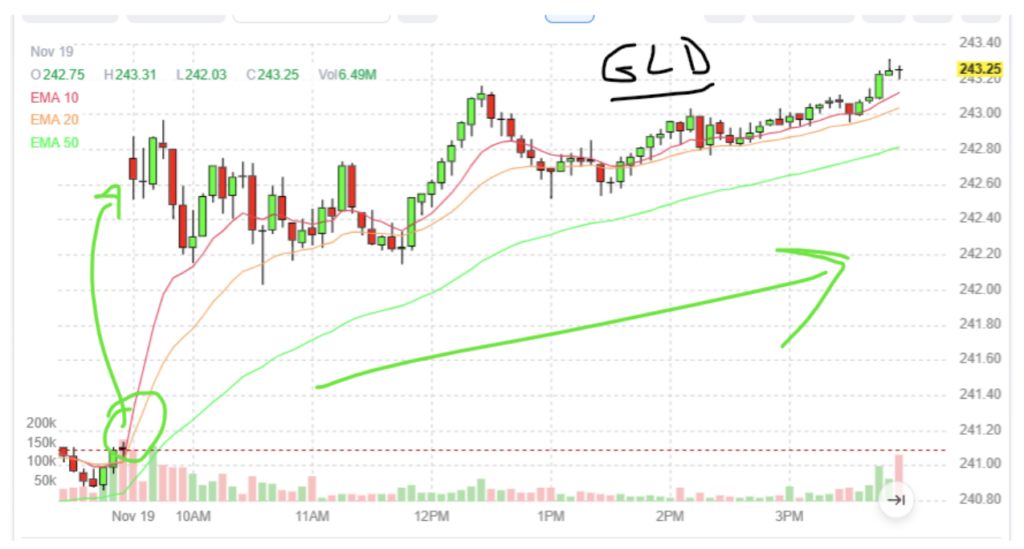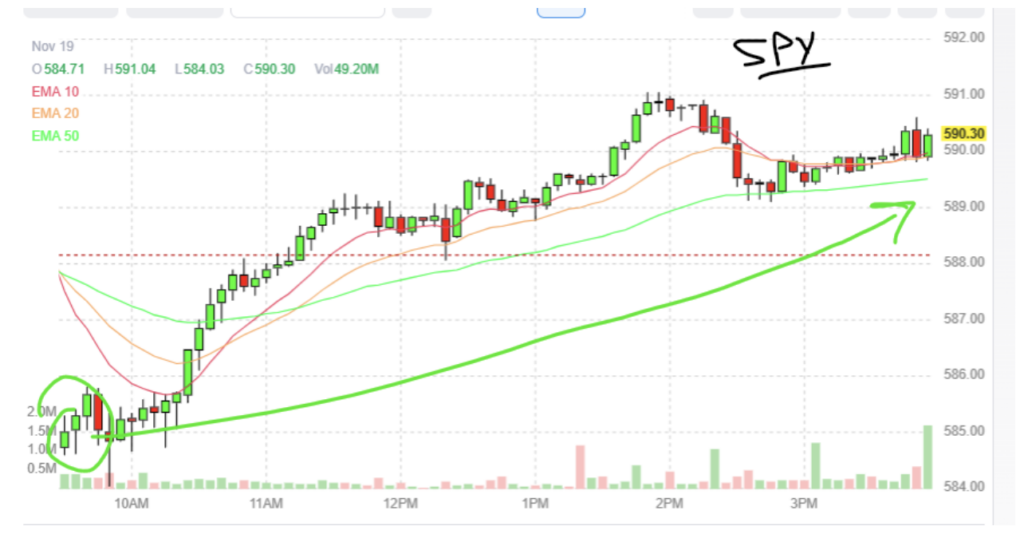We’ve all heard it: “Don’t pay attention to the news.” And for the most part, it’s great advice. Financial headlines are designed to grab attention, not guide your trades. They’re often packed with hype, conflicting opinions, and a relentless focus on mega-cap stocks that dominate the indexes but may not dominate your portfolio.
But sometimes the news does matter. Knowing when to pay attention can help you navigate the markets with more confidence and less noise.
Take Tuesday as an example. Stocks opened lower after escalating tensions in the Ukraine-Russia war sent shockwaves through markets. The headlines were stark:
- Ukraine reportedly used Western-supplied missiles to strike a Russian border region.
- Russia responded by updating its nuclear doctrine and expanding conditions for using atomic weapons, even against conventional attacks on its soil.
Investors reacted swiftly, triggering classic risk-off behavior:
- Stocks: Equity markets sold off as traders moved to reduce exposure.

- Bonds: The 10-year Treasury yield fell to a one-week low as investors sought safety.

- Gold: The ultimate hedge against uncertainty climbed to a one-week high.

This wasn’t just noise but a clear example of news shaping short-term market moves.
Why News Usually Doesn’t Matter
Most headlines, however, aren’t this significant. They’re just distractions. Here’s why:
- News Sells Drama, Not Solutions
Financial media thrives on conflict. For every optimistic outlook, there’s a doomsday prediction waiting to grab your clicks. This constant back-and-forth isn’t actionable—it’s exhausting. - Mega-Cap Mania
Outlets obsess over big names like Apple, Tesla, and Microsoft. But if your portfolio doesn’t revolve around these giants, much of the coverage isn’t relevant to your strategy. - Markets Move Ahead of Headlines
By the time news hits the airwaves, markets often have already priced it in. Reacting too quickly can leave you chasing moves that are already over.
When News Deserves Your Attention
So, how do you filter the noise and focus on what matters? Ask yourself these questions:
- Does It Change Fundamentals?
News that impacts economic growth, corporate earnings, or interest rates is worth paying attention to. For example, rising geopolitical tensions can push energy prices higher, affecting inflation and consumer spending. - Is the Reaction Overdone?
Markets often overreact to headlines, only to calm down later. If a sell-off feels panic-driven and you see strong fundamentals underneath, it might be a buying opportunity. - Does It Fit Your Strategy?
Short-term traders might jump on volatility, while long-term investors can ignore most headlines unless they signal a broader trend. Knowing your goals helps you filter what’s actionable from what’s not.
Bringing It Back to Tuesday
Let’s circle back to Tuesday’s market moves. The news drove a quick, emotional reaction. Stocks dropped, bonds rallied, and gold spiked. But by the afternoon, equities found their footing, and the markets stabilized.

If you were a trader, this volatility could’ve offered opportunities in safe-haven assets or oversold sectors. For long-term investors, it was just noise—a blip in the bigger picture. We railed off a previous resistance line that seems to be acting as support for now.

The point is, that not all news is created equal. The key is understanding when it’s moving the market meaningfully versus when it’s just filling airtime.
What This Means for You
When you see the next big headline, don’t panic. Instead:
- Pause and Assess: Does this news impact the bigger picture?
- Stay Disciplined: Let your strategy—not the news—guide your decisions.
- Look for Opportunity: Short-term reactions often create long-term value.
As traders and investors, we can’t avoid the news entirely. But by tuning out the noise and tuning into what truly matters, we can make smarter decisions—and maybe even find an edge in the chaos.


